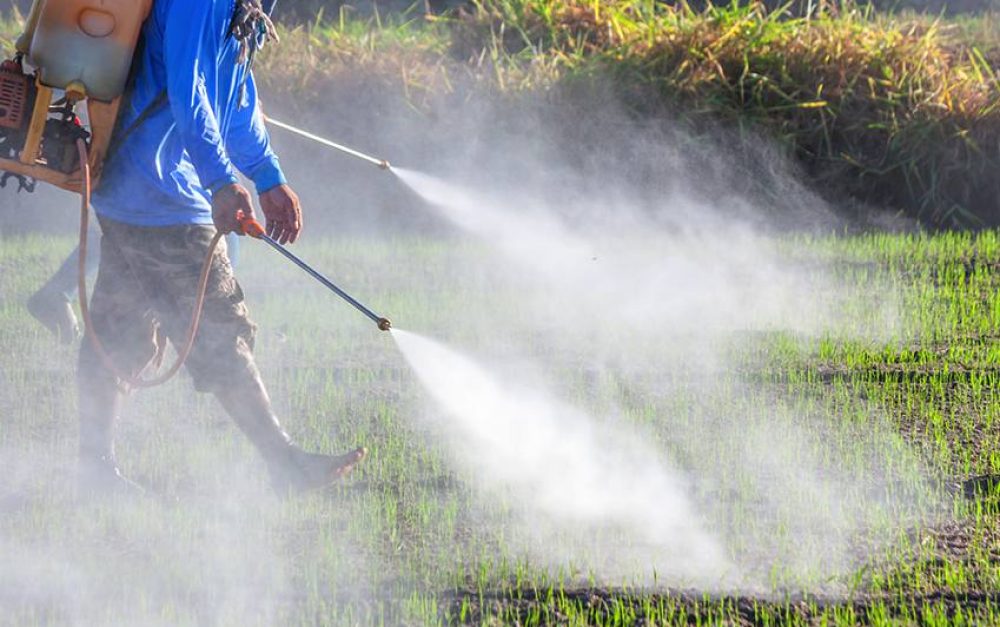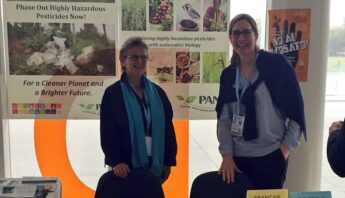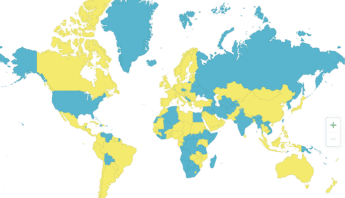Here in the U.S., PAN’s work often focuses on mobilizing action around specific pesticides to strengthen regulations, win phaseouts, and spur investment in safer alternatives. Recent examples include our work on chlorpyrifos, which is harmful to the health of children and farmworkers; dicamba, which is wreaking havoc on the crops and livelihoods of farmers across the country; and glyphosate, a probable carcinogen and key ingredient in the most widely used herbicide in the world.
What’s not often visible is that these U.S.-based efforts are part of a broader campaign through our global PAN International network to phase out the use of Highly Hazardous Pesticides, or HHPs, around the world.
The HHPs list
Earlier this month, PAN International released an updated list of Highly Hazardous Pesticides. The expanded list, which was first published in 2009, now includes 306 chemicals, many still in widespread use in both industrialized countries and the Global South. This list was compiled after extensive review of existing scientific research, and includes pesticides that are very toxic to humans, those that cause cancer or interfere with the hormone system, and those that have severe negative effects on the environment.
Without global rules and safeguards in place, the most hazardous chemicals are inevitably pushed into communities and countries that face economic and political disenfranchisement, making the terms of chemical use fundamentally unfair, and opening a giant loophole for the chemical industry that comes back to bite us all — in the chemicals used elsewhere that migrate on wind, water and food into our bodies.
This “circle of poison” was in fact the issue that led to PAN’s founding as a global network more than three decades ago.
Calling for global action
That is why at the beginning of April representatives from PAN International, including PAN North America’s Executive Director Kristin Schafer, will be heading to Uruguay to join a gathering of governments from across the globe to push for urgent action on these harmful chemicals.
The Uruguay meeting is a progress check on the Strategic Approach to International Chemicals Management (SAICM), a forum where governments gather to address — and in theory, put plans in place to act on — the harm that chemicals wreak on health and the environment around the world. The SAICM agreement offers tools and concrete guidance for governments to protect the health and well-being of communities and ecosystems.
In Uruguay, PAN International will be delivering an appeal for the ban of HHPs, signed by 564 organizations from 111 countries. The appeal calls for action by decision makers everywhere — from government leaders to private retailers and food processors — to take concrete steps toward a progressive ban of HHPs, and their substitution with ecosystem-based alternatives.
Agroecology: A better approach
PAN promotes agroecology as the appropriate approach to replace the use of HHPs on the farm, and has published several handbooks and field guides to facilitate the transition away from these harmful chemicals. The PAN International publication, Replacing Chemicals with Biology: Phasing Out Highly Hazardous Pesticides with Agroecology was recently highlighted as a key resource by the UN Food and Agriculture Organization.
As Maïmouna Diene of PAN Africa explained at last year’s Agroecology Forum in Rome, PAN’s members — including peasant farmers, women, workers, Indigenous communities and rural families, among others — remain on the frontlines of harm from chemical pesticides, and action is needed:
From PAN’s perspective, agroecology offers the only real possibility of social and political transformation of our food and farming systems to ensure a just future for the world’s food producers.”
The HHPs list and call to action are steps toward making the transition away from HHPs to agroecological systems happen. In solidarity with PAN International as we head to the government meeting in Uruguay, you can take action against these hazardous pesticides by signing this petition calling for the global phaseout of HHPs.








